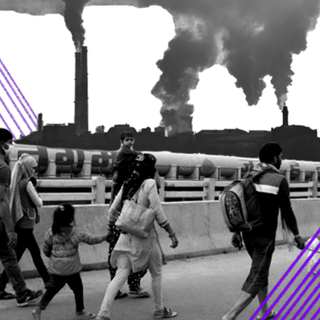We are breathing in toxic chemicals wherever we go — when out shopping, when working from the office, when attending lectures in classrooms, and even at home — according to a new study.
Called per- and poly-fluoroalkyl substances (PFAS), they are a class of more than 5,000 chemicals that are resistant to water, heat, and oil — making them ubiquitous in water-resistant cleaning supplies, food packaging, and in the manufacturing of plastic, among other things.
Earlier, the major sources of exposure to the chemicals were believed to be food and water. However, published in Environmental Science and Technology yesterday, the study found that even the dust at home, and in workplaces expose people to toxic chemicals.
PFAS are made up of chemical bonds that don’t break down easily, lending their presence a “forever” element in drinking water, soil, food, and even in the human bloodstream. This is also why they’re called “forever chemicals,” and are known to accumulate in human bodies over time.
The scientists behind the present study found it in the air of kindergarten classrooms, homes, clothing stores, laboratories, offices, and even elevators. The researchers believe carpets to be among the biggest sources of PFAS in these places, especially since they were present in the highest concentrations at carpet stores. “PFAS were formerly used as stain and water repellents in most carpets,” Maya Morales-McDevitt from the University of Rhode Island, who led the study, noted.
Related on The Swaddle:
What You Need to Know About the Chemicals We’re Exposed to Every Day and Ingest Without Realizing
But the researchers explained that even if we replaced carpets, for instance, in homes, schools, and offices, basic daily-use products like clothing, shoes, non-stick cookware, and other furnishings could just as well emit volatile PFAS into indoor air. They’re also present in the paint on our walls, pizza boxes, candy wrappers — you name it.
Past research has linked PFAS to increased risk of heart disease, ovarian insufficiency or early menopause, lower testosterone levels in male adolescents, high blood pressure, decreased lung function, and even cancer. Moreover, a recent study also tied this class of chemicals to worse outcomes in Covid19 patients.
However, at present, the chemicals remain unregulated in several countries, including India.
A study from June had also found that they were present in “high” levels in make-up products such as eyeliners and lipsticks produced by some of the world’s biggest beauty brands — especially in those marketed as “waterproof,” “wear-resistant,” or “long-lasting.”
“As long as [forever chemicals] continue to be used in products, we’ll all be eating, drinking, and breathing PFAS… We need to turn off the tap and stop all unnecessary uses of PFAS as soon as possible,” Tom Bruton, a senior scientist at the Green Science Policy Institute in California, and who co-authored the study, said in a statement.




